Winter offers beautiful opportunities for photography like snow-covered landscapes, and even the Northern Lights. But of course, it’s also cold. Here are some essential cold weather gear that will keep you warm.
Feet
I feel like if I can keep my feet warm, I’ve won half the battle. I love merino wool socks. They are a naturally great insulator. Sheep know this, and we should too.
When cotton gets wet, it loses its insulative properties. Not so with merino wool. It can absorb far more moisture without even feeling amp too. Oh, and as a bonus, it is naturally antimicrobial, more resistant to smelling and dries much quicker than cotton.
Pair merino wool socks with some great waterproof hiking boots, and your feet will thank you profusely.
If you’re planning on stepping around in cold water, consider getting NRS Neoprene Boundary Socks. Sure, it says it’s rated for water 65 degrees and up. But that rating is still higher than your other socks, isn’t it? NRS also makes knee-high water boots as well if you’re really serious about getting that winter waterfall photo.
Legs
I like wearing fleece or fleece-lined long underwear. They are soft and warm, and hold up while photographing during cold winter nights.
A great alternative to this is a midweight or heavyweight merino wool base layer. It’s still very soft. And remember all those benefits? Warm? Odor-resistant? Stays dry longer? These qualities make for a great base layer.
Most of the time, I wear cheap work pants because I need the pockets. I usually wear old pants that I’ve used to paint the house since I’m going to probably beat them up anyway. Remember, I do night photography, so I figure no one’s going to see me anyway.
If it’s really cold or windy, a good way to go is to wear fleece-lined windproof waterproof hiking pants. These can be found on Amazon for under $40. And they look much better than scruffy work pants in case you need to be seen in daylight.
 Even those of us in warm weather climates can get in on the fun of photographing a winter scene. This is an old scan of a film print from long ago that I still find charming.
Even those of us in warm weather climates can get in on the fun of photographing a winter scene. This is an old scan of a film print from long ago that I still find charming.Torso
My approach to what I wear for the torso is similar to how I approach the legs. First, fleece or fleece-lined long underwear. Once again, they are soft and warm and make a great base layer.
Again, a great alternative might be a merino wool base layer.
I often wear a hoodie on top of that. Sometimes, I wear a long-sleeve merino wool sweater or heavier weight shirt. Then on top of that, a warm windproof jacket. I prefer having a jacket with a decent amount of pockets so I can keep photography stuff nearby. Or if it’s really cold, I can stuff my hands inside some warm pockets.
Speaking of pockets, I keep my camera batteries here for added warmth. If I really need to keep them warm, I’ll put them in a small bag with an activated chemical hand warmer like Hot Hands.
If you want to be even warmer, another “trick” is to wear compression sleeves. These feel great anyway, so you might want to do this even if you are not really that cold.
Hands
Speaking of hands, I like to wear gloves with the fingers free. But first, a story.
 I found compression gloves for injuries, arthritis and more can work surprisingly well in the cold. And they are inexpensive.
I found compression gloves for injuries, arthritis and more can work surprisingly well in the cold. And they are inexpensive.A couple of years ago, I injured some fingers on my hand when I mistakenly rammed them into the kitchen sink. The doctor said that I should tape my fingers together and wear compression gloves. This helped immensely.
What I also found was that they kept my hands surprisingly warm, even when the temperatures were barely above freezing.
Now, I’m not going to tell you that they are as warm as winter gloves. Far from it. But I found that even for temperatures as low as 35-40°F (1.6-4.44°C), I didn’t really need to wear other gloves very much if I dressed warmly and it wasn’t windy.
Now, I should mention that I typically move around quite a bit at night and am often quite warm anyway. If your hands get cold easily, these may not work for you. But what I loved about these gloves were that since they didn’t cover my fingers, it was easy to use the camera. And they cost much less than photographer’s gloves.
Photographer’s gloves with open fingers
Photographer’s gloves are basically a better, warmer version of the compression gloves. You could consider the Heat Company Heat Tube Fingerless Gloves/Liners. These also leave your fingers free.
However, they also have thicker fabric but are still elastic and have longer wrist sleeves to keep out the cold. Not only that, you can also stuff chemical hand warmers inside. Now that will keep your hands seriously warm! These also have a D-ring so you can keep gloves (shells) attached.
Photographer’s gloves with closed fingers
I can also recommend Vallerret Power Stretch Pro Liner Photography Gloves. I tested them in 45-degree weather, but believe they would help a lot of people down to freezing temperatures. They have enough sensitivity to operate the camera and tripod — and even operate your smartphone!
Ski gloves
I have a pair of $10 ski gloves. They work great and are absurdly warm, but they are inconvenient since you usually have to take them off to operate the camera. Unless you cut one of the fingers off the glove. They’re only $10, right?
Like ski gloves with the fingers chopped off … only better!
The last glove I’ll add here, I must confess, I’ve never used these. I suppose I’m OK with destroying $10 gloves. And I don’t use them much anyway.
Vallerret also makes Markhof Pro Photography Gloves. These have fingers that zip and flip. Not bad, eh? But there’s more. They use a nonslip grip fabric. And they have an inner liner of merino wool, so they’re nice and warm.
As a bonus, they have a little pocket on the back of the thumb for SD card or hand warmer and microfiber lens wipe. Great. And I’ve mentioned already how much I love pockets. While I’ve never used these, some of our Photofocus team swears by them. They sound like a winner.
Head
We’ve heard for years that we lose 30% of our heat from the top of our head. While it’s not nearly that high, we still want to keep our head — and ears — warm.
I don’t have anything fancy here. I wear a beanie that is very special to me, something my friend’s dad once wore. It’s super warm, and I’ve worn it the mountains of Chile, where it kept me quite warm. Never forget, though, the magic of merino wool. Consider a wool beanie. And, well, there’s always the hood of your jacket too. But I strongly prefer beanies for warmth and comfort.
If it’s windy or really cold, I’ll also wear a wool scarf to keep my neck nice and warm. This has the added bonus of preventing your nose from sticking to the camera if it’s absurdly cold out. No, I’m not kidding.
In the car
 It’s California, and it doesn’t look cold. But weather shifts quickly. It was hoodie weather during the day, but dropped below freezing at night, a thirty-degree shift in temperature.
It’s California, and it doesn’t look cold. But weather shifts quickly. It was hoodie weather during the day, but dropped below freezing at night, a thirty-degree shift in temperature.I have a small old suitcase. I dropped it off at the airport on the East Coast with four wheels. When I picked it up on the West Coast, it only had three wheels. I now use this for storing extra pants, shirts, socks and a towel in my car. This has come in handy several times, enabling me to get damp clothes off or dry things off.
I also keep several plastic bags and a large trash bag here as well. When I’m finished for the evening, I can wrap my camera in a large ziplock bag or sealed plastic bag or, perhaps easier, wrap my entire camera backpack in a trash bag, before taking it indoors. This helps prevent damaging condensation.

 2 weeks ago
11
2 weeks ago
11




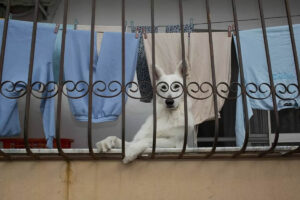
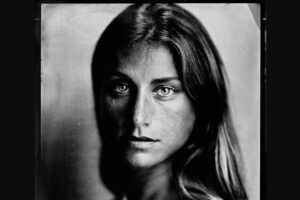
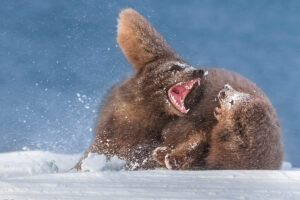

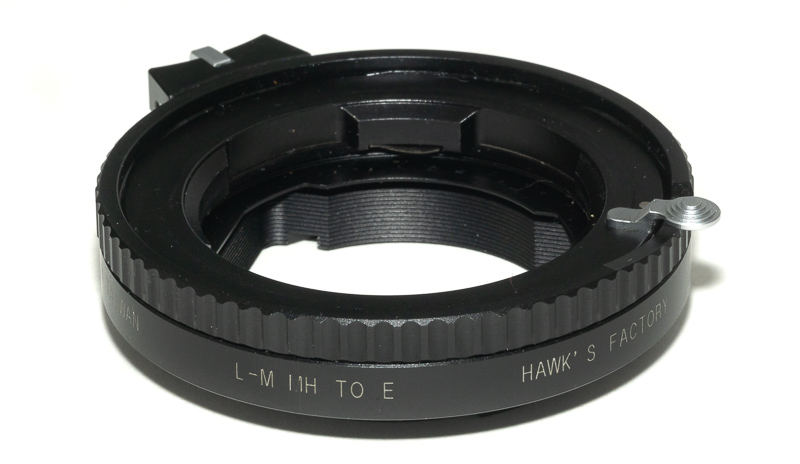

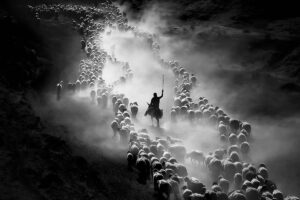
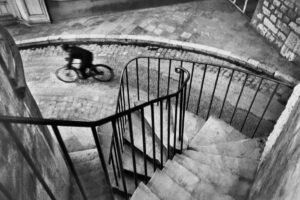
 English (US) ·
English (US) ·